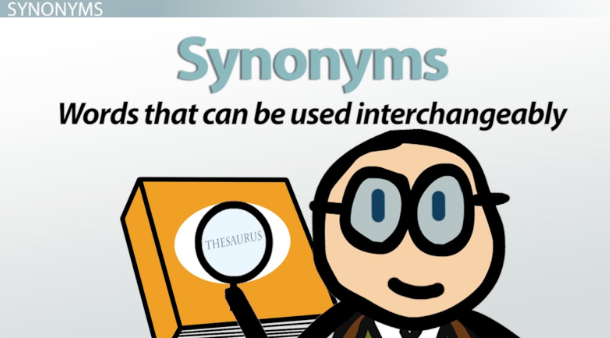history synonym helps us find other words that mean the same as history. When you ask for a history synonym, you look for easy words like past, record, story, or chronicle. These words help your writing sound clear and fresh. If you write a school report, a short story, or a simple note, a good history synonym makes your idea strong but not repeated. Using a history synonym the right way keeps your sentences smooth and fun to read. Try saying the sentence out loud after you swap the word — that will show you if it sounds natural. Little practice steps help a lot and make your writing shine.
history synonym In the next parts, we will show simple rules to pick the best word. You will see short lists of history synonyms and learn when to use each one. For example, use “past” for time before now, “record” for saved facts, and “story” for a tale about people. We will give quick exercises you can do in your notebook to pick a good history synonym each day. There is also a tiny quiz idea and a short checklist to keep. These steps help students, teachers, and new writers feel sure about choosing the right word.
Table of Contents
What is a history synonym? — easy meaning and quick example
A history synonym is just another word that can replace the word “history” in a sentence. For example, instead of saying “the history of the city,” you could say “the past of the city” or “the record of the city.” These words mean almost the same thing but sound a little different. Using synonyms helps writing stay fresh and less boring.
When kids write stories or school essays, they may use the word “history” many times. If the word is repeated too much, the writing feels heavy. A history synonym makes the lines easier to read. For example: “She loved the story of her family” sounds smoother than “She loved the history of her family.”
A history synonym is not only about changing words. It is also about choosing the right one that fits the meaning. Some words are simple, like “past,” while others, like “chronicle,” sound a little formal. That is why it is good to know many choices.
Top 10 simple history synonyms you can use today
When you write, you may want quick words that can replace “history.” Here are 10 easy options: past, record, story, chronicle, background, legend, heritage, account, tradition, and memoir. Each of these words works in different places.
For example, “past” is good when talking about time before now. “Record” is strong when you mean written facts. “Story” is light and works for personal writing. “Chronicle” is formal and works for long records of events.
It is smart to practice these words by writing small sentences. Try swapping history with each synonym and read it out loud. This makes you understand which one sounds best. Over time, you will remember when to use each word.
When to use “past” vs other history synonym choices
The word “past” is the easiest history synonym. It shows something that happened before the present time. For example, “In the past, people used candles” means a time before now. It is simple and clear.
But “past” cannot replace history in every sentence. If you are writing about facts stored in books, “record” or “chronicle” is better. For example, “The record of the war” sounds more serious than “The past of the war.”
This shows that picking the right synonym depends on the meaning. If you only talk about time, use “past.” If you want to talk about details or facts, use “record.” If you want a story feel, “tale” or “story” is the best choice.
Use “record” right: a simple guide for school work
Record is a powerful history synonym. It works well in school essays, projects, and reports. A record means a written or saved detail about an event. For example, “The record of kings” shows written notes about rulers.
Using “record” makes your writing sound smarter. Instead of writing “the history of music,” you can write “the record of music.” This word works best when the topic has facts, numbers, or dates.
Remember that a record is not always about stories. It is more about official or saved details. So use it when you want your writing to feel formal and strong.
Story, tale, chronicle — which history synonym fits best?
“Story” is a very soft synonym. It is used when you want your sentence to sound simple or fun. For example, “The story of her childhood” feels warm and easy.
“Tale” is like story but often used in fairy tales or myths. It is good for legends and folk stories. Example: “The tale of the old king.”
“Chronicle” is more formal. It is used for long lists of events in order. For example, “The chronicle of the empire” shows a serious record. So, when writing, you can pick story, tale, or chronicle depending on the tone you want.
Short examples: replace history with a better synonym
Let’s look at some quick swaps.
- “The history of Rome is long.” → “The past of Rome is long.”
- “The history of kings is known.” → “The record of kings is known.”
- “The history of her family is sweet.” → “The story of her family is sweet.”
Each sentence feels a little different. These changes show how a history synonym can shape the mood of your writing. The more you practice, the better you will get.
How a history synonym makes your sentence stronger
Using synonyms makes your writing stronger because it avoids boring repeats. When a word is used too many times, the reader loses interest. A history synonym gives your sentence a fresh spark.
Also, using different words makes your writing more colorful. “History” feels plain if used again and again, but “tale,” “record,” or “legend” make the writing shine.
This is helpful not just in school, but also in blogs, stories, or even social posts. Readers enjoy variety, and synonyms help deliver that.
Practice activity: pick the right history synonym (3 easy steps)
Here is a simple way to practice:
- Write three sentences with the word history.
- Replace history with another word, like past or record.
- Read it aloud and check which one sounds better.
Doing this daily builds skill fast. Over time, you will know the right synonym without thinking. This small practice makes you a confident writer.
Common mistakes when using a history synonym and how to fix them
One mistake is using a synonym in the wrong place. For example, saying “the past of the book” sounds odd. Instead, use “record of the book” or “story of the book.”
Another mistake is forcing a hard synonym when a simple one works. Example: using “chronicle” in a light story for kids feels heavy. In that case, “tale” or “story” is better.
The fix is simple: always think about the meaning first. Choose the synonym that matches the idea, not just the word.
Quick checklist: choose the best history synonym every time

Here is a tiny checklist for picking the right word:
- Talking about time? → Use “past.”
- Talking about saved facts? → Use “record.”
- Talking about people’s stories? → Use “story” or “tale.”
- Talking about culture? → Use “heritage” or “tradition.”
- Talking about formal lists? → Use “chronicle” or “account.”
Keep this list in your notebook. It will help you pick quickly and write smoothly.
Tiny quiz: pick the right history synonym (answers and tips)
Let’s try a short quiz:
- The ______ of Rome is full of wars. (past / tale)
- The ______ of kings is written in books. (record / story)
- The family ______ was told by grandma. (tale / chronicle)
Answers: 1 = past, 2 = record, 3 = tale. This quick game shows how context changes the right choice. Playing this kind of quiz makes learning fun.
Conclusion
A history synonym is a helpful tool for writers of all levels. Words like past, record, story, chronicle, and tradition give life to sentences. Choosing the right one depends on the meaning and tone you want.
By using synonyms, your writing becomes smooth, colorful, and fresh. With practice, you can quickly decide which synonym fits best. Remember: the goal is not just to replace words but to make your ideas clear and strong.
FAQs
Q1: What is the simplest history synonym?
The simplest word is “past.” It is short, clear, and easy to use.
Q2: Can I use record instead of history?
Yes, but use “record” when you mean saved facts or details, not just time.
Q3: Which history synonym works best in stories?
The words “story” or “tale” are perfect for stories.
Q4: Do all synonyms mean the exact same thing?
No, some are formal, some are casual. Always check the meaning before using.
Q5: How can I practice history synonyms?
Write sentences, swap the word history with another, and read it aloud.



